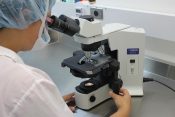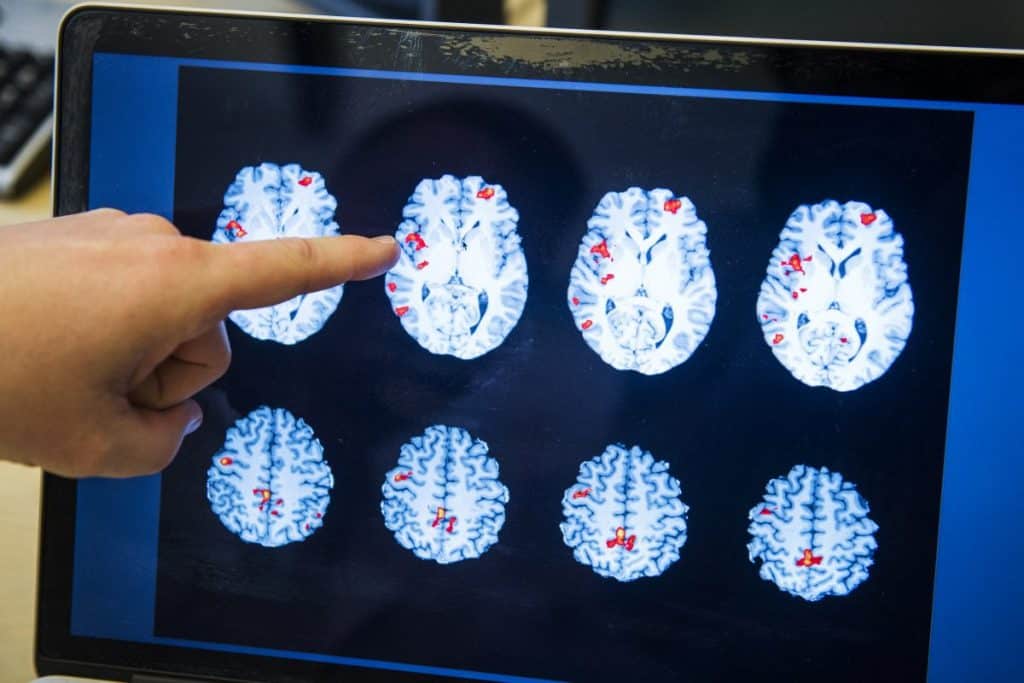Scientists believe they could double the survival of people with advanced cancer within a decade because of a number of medical breakthroughs in the coming decade that will increase the body’s ability to fight cancer on its own and limit the ways in which healthy cells are tricked into helping cancer survive.
World-leading experts from the Institute of Cancer Research (ICR) in London and Britain’s Royal Marsden NHS Foundation Trust said cutting-edge research would mean more people would be cured and others would live far longer.
Cancer scientists are increasingly learning about what they describe as the “cancer ecosystem.”


It is a complex system that allows cancer cells to thrive, consisting of cancer cells, the immune system, and the molecules, cells, and structures that surround tumors and help them grow.
Experts from the ICR and Royal Marsden believe that by using several methods of attack, they can make great strides in areas such as destroying cancer cells, boosting the body’s ability to fight cancer on its own and preventing healthy cells from helping the cancer, which ‘tricks’ them, to survive.
One line of research is interrupting the ability of cancer cells to instruct other cells in the body to support them.
For example, cancer cells send signals to areas such as the bone marrow to tell “slave cells” to make a “nest” in other parts of the body for the cancer cells to settle there.
Interrupting these communication pathways would help stop the cancer from spreading.
Further areas of research development include combining existing treatments for better effect and using immunotherapy to help the body’s own immune system fight cancer.
Kevin Harrington, Professor of Cancer Biological Therapy at the ICR and Consultant at the Royal Marsden, said: “We understand the fact that a lump of cancer in a patient is much more than just a ball of cancer cells. It’s a complex ecosystem and within that ecosystem there are elements that are more suitable as targets and will give us a huge number of opportunities to cure more patients and to do it with fewer side effects.”
He said experts are already learning how to use drugs that don’t kill cancer directly, but that “instead talk to the immune system, boosting the function of those cells that are capable of attacking cancer cells and dampening or reducing the function of cells that naturally try to protect cancer cells.” .
He said this shifts “the balance within the cancer ecosystem towards an environment that is more conducive to the effects of our standard cancer therapies and the new therapies we will develop.”
One avenue of research is to use genetically engineered viruses to “target cancer cells and to communicate with the microenvironment, the ecosystem that the cancer is in, to trigger a signal to reject the cancer and kill those cancer cells,” Harrington said.
Scientists will also expand research into microscopic fragments of cancer that end up in the bloodstream with the goal of detecting the disease in its earliest stages and treating it.
dr. Olivia Rossanese, director of cancer drug discovery at the ICR, said: “Newer, personalized treatments are helping cancer patients live quality lives for longer, but some types of cancer remain very difficult to treat, and once the cancer has spread , is often incurable”.
“We plan to open up entirely new avenues of attack on cancer, by overcoming cancer’s deadly ability to develop and become resistant to treatment.
“We want to discover better targets within the tumor and the wider ecosystem that we can attack with drugs. We are finding powerful new ways to completely eradicate cancer proteins and discovering smarter combination treatments that attack cancer on multiple fronts. Together, this three-pronged approach can create smarter, better cancer treatment and offer patients longer lives with fewer side effects.”
Launching the joint five-year research strategy, Professor Kristian Helin, CEO of the ICR, said: “We have created a truly exciting plan to unravel and disrupt the cancer ecosystem, with new immunotherapies, drugs that target surrounding tissue and smart new anti-evolutionary combinations and strategies dosing”.
“Research has driven remarkable improvements in treatment in recent decades, but we believe we can go further and eradicate some cancers by targeting the ecosystems necessary for their growth or tipping the balance in favor of the immune system,” he added.
With the help of artificial intelligence (AI), scientists hope to create new ways to combine drugs or adjust their dosages to stop or slow cancer growth.
They also hope to discover more about how different types of cells within a tumor associate and work together – potentially opening up new targets for treatment.
Professor Harrington said: “Immunotherapy has started to revolutionize the treatment of some cancer patients, we are even starting to see improvements in people with advanced disease who until recently were destined to die of cancer. But, unfortunately, immunotherapy does not work for all patients or all types of cancer, and we need to get much better at predicting whether it will work and increase the effectiveness of treatment. We believe there are huge opportunities to use combinations of immunotherapy and other methods like radiotherapy to destroy the cancer ecosystem.”
“Our goal is to change the balance in favor of the immune system and make the environment inhospitable to cancer cells and favorable to elements of the immune system that can attack them, so that the disease is destroyed.”
Track N1 via Android apps | iPhone/iPad and social networks Twitter | Facebook | Instagram.

